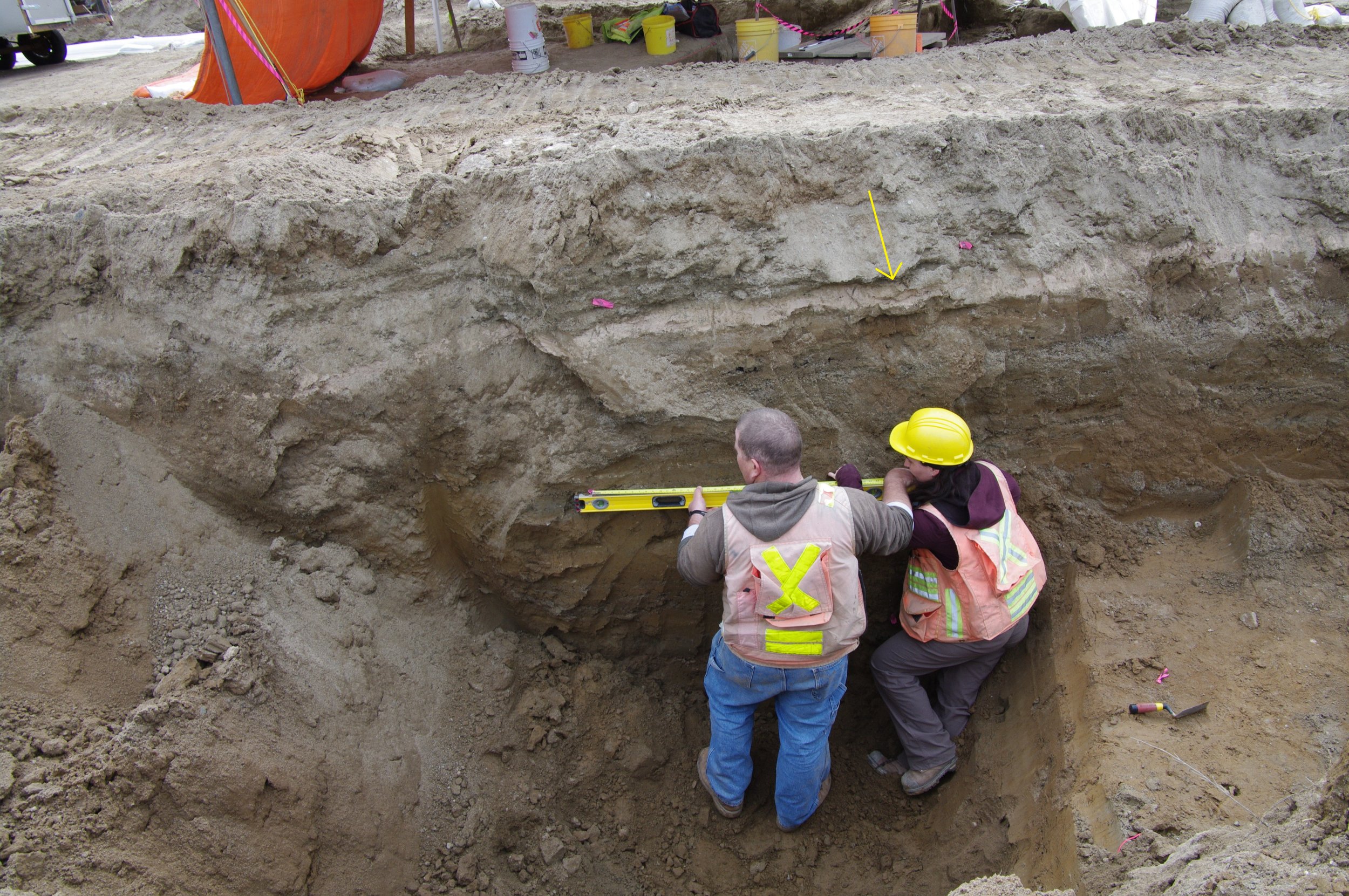As most archaeologists can attest to, usually, when you show an artifact to a member of the public, people are polite, but often I can see one question on their face: Why should I care? I am hoping to inspire an answer to that question, in around 700 words.
Archaeology is more than just (super cool) pointy rocks. Archaeology is the study of humans and human behavior through the material culture that is left behind. Having said that, often what tells us much about human behavior is what is not left behind.
Carbon dating tells us that approximately 6,850 years before present (BP), Mount Mazama in Oregon erupted, creating what we know today as Crater Lake. This eruption resulted in volcanic depositions (or tephra) being flung all across North America, in our case, 1,211 km to right here to Kamloops. This tephra can be clearly seen as a pinkish-white, approximate 10 cm thick layer, mostly in river valleys throughout the Kamloops area. We have identified archaeological sites which display human occupation many years before and after this eruption. And we have seen a lack of archaeological evidence within the tephra layer, and immediately after the event. What does this mean?
Not a lot is currently known about the impacts that this falling ashy layer would have had on the people who lived here at the time. Based on other eruptions, such as the 1980 Mount St. Helen’s, we can certainly ascertain that the rapid deposition of this volcanic tephra could have caused chemical changes in the soil and water, resulting in the disruption of localized vegetation, wildlife and aquatic life.
There is evidence of mass landslides, as well as the re-routing of creeks and streams, as a result of this volcanic-ash deposition. All of these possible variables combined, one starts to imagine the overall stress to the local ecosystem. In terms of resource procurement, if food and other resources declined in a particular area, people would have had to go elsewhere to get what they needed. It is easy to imagine what this type of stress would have looked like. Take into consideration how your behavioral patterns change when a staple item in your household is not available at your usual grocery store. Do you drive around town, stopping in different stores trying to track it down? Or just go without?
A more recent example of massive environmental stress that we have experienced locally were the 2017 Wildfires in BC. Although the fires did not burn within the City of Kamloops, they were close enough for most of us to consider them local. The short-term implications for people living in evacuation zones meant a loss of home, and ensuing temporary relocation to a safe zone. Resource procurement came differently to evacuees – many people had no choice but to rely on charitable donations to meet their basic survival needs. Human kindness at the time was palpable – everyone wanted to help and offered what they could. In following years, the forestry and logging sector made massive adaptations to preserve the industry. Why? Because the harvesting of resources puts money in pockets and food on tables: people gotta eat.
Although Covid-19 is not really an environmental change, it has resulted in a mass disruption to day-to-day life that we all can relate to. We, like the people living in this valley 7,000 years ago, cannot gather in the spots we used to, in the ways we used to, with the people we used to. Our supply chain has massive changed, from shortages (the 2020 toilet paper crisis) to changes in shopping patterns (locally or online). The challenge of adapting to resource shortages is a struggle that humans have faced since the existence of our species. Kamloops has been here before, and we have adapted. The archaeological record shows us that.
I study archaeology because of a desire to understand and connect with people. I am honored to record and interpret a piece of history, to learn from unwritten records, and tell the stories of past peoples. The “mundane” day-to-day struggles are at the foundation of what makes us human; it’s the day-to-day that defines humanity.
I am not going to finish off this piece by telling you why you should care about archaeology. I want you to think of how you should care about archaeology. What parts of your life can be bettered by the knowledge of past peoples? I guarantee you, there is something archaeology can offer that you can relate to.



